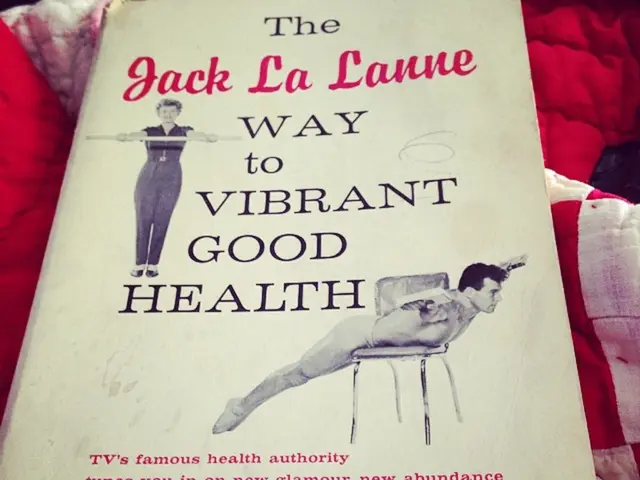Alcohol Abstinence Enhances Mental Brilliance
Want a sharper mind that's free from the fog of mental haze? It might be your go-to drink causing the problem. Giving up alcohol isn't just about cutting back on alcoholic beverages; it's about waking up to a clearer, more focused life.
Here's why booze often goes unnoticed in dulling your mental sharpness: it creeps up on you, progressively muddying your thoughts, prolonging cognitive processing, and blurring your concentration. It often gets mistaken for burnout or stress. But over time, this gradual dulling effect becomes persistent, turning your razor-sharp mind into a foggy mess.
Now, what exactly is mental clarity? It's how you absorb information, make split-second decisions, and remain emotionally balanced—it's the difference between surviving the day and dominating it. With mental clarity, your responses become intentional rather than reactive. You notice details, hold onto information, and manage stress like a pro. In both work and life, clarity sets you apart.
Alcohol messes with neurotransmitters, deteriorating your brain function. Even moderate drinking slows down neural communication, particularly in areas responsible for judgment and focus. In the long run, consistent alcohol use can lead to a reduction in gray matter, hampering cognitive agility, making you run on slow, outdated hardware.
Putting emotions on ice with booze may seem like a good idea, but it only clouds them, making them harder to manage. Sober living allows you to identify your triggers, process emotions constructively, and respond wisely, enhancing your emotional intelligence.Without alcohol, you'll be better equipped to manage your emotions and relationships.
Sleep is the body's time to recharge, but alcohol disrupts quality rest, hindering memory consolidation and other repair processes. Removing alcohol restores natural sleep architecture, ensuring you get the rest your brain truly needs to rejuvenate and revitalize.
Mornings without a hangover allow you to be more alert and awake, feeling present and ready to tackle the day. A clear start sets the tone for clarity throughout the day, boosting your productivity.
Quitting alcohol leads to a rebirth of mental clarity, transforming your thought processes, emotions, and decision-making. Without alcohol, you'll think faster, feel deeper, and live more intentionally. The transformation will ripple across every aspect of your life, personal, professional, and emotional. Clear mind, clear path. And in that newly found clarity, you'll find the freedom to navigate life on your terms.
Just remember, mental clarity is not just about avoiding blackouts and hangovers; it's about restoring cognitive function, enhancing emotional intelligence, and rewiring your brain for peak performance.
Samantha Green, alumna of University of Hertfordshire, holds a degree in psychology and has a passion for mental health, wellness, and lifestyle.
Enrichment Data:Long-term alcohol consumption leads to a range of neurological and psychological impairments, significantly impacting cognitive function and mental clarity. These detrimental effects include an increased risk of dementia and cognitive decline, brain atrophy, reduced neuroplasticity, memory loss, learning difficulties, motor and speech impairments, disruption of brain communication, emotional dysregulation, addiction, and psychological dependence. These effects worsen cognitive deficits, even at previously considered moderate levels of alcohol intake[1][2][3][4][5].
In Samantha Green's view, as an alumna of University of Hertfordshire with a degree in psychology and a passion for mental health, long-term alcohol consumption can cause neurological and psychological impairments that affect cognitive function and mental clarity [1][2][3][4][5]. These detrimental effects include an increased risk of dementia and cognitive decline, brain atrophy, reduced neuroplasticity, memory loss, learning difficulties, motor and speech impairments, disruption of brain communication, emotional dysregulation, addiction, and psychological dependence [1][2][3][4][5]. By quitting alcohol, one can restore cognitive function, enhance emotional intelligence, and rewire the brain for peak performance, leading to a sharper mind free from mental haze, a better ability to handle emotions and relationships, improved mental health, and a more intentional life [1][2][3][4][5]. A good sleep, which is essential for the body's recharge, is hindered by alcohol use, disrupting memory consolidation and other repair processes [1][2][3][4][5]. Therefore, removing alcohol from one's life can contribute to overall health and wellness, including workplace wellness, fitness and exercise, and health and wellness [1][2][3][4][5].








